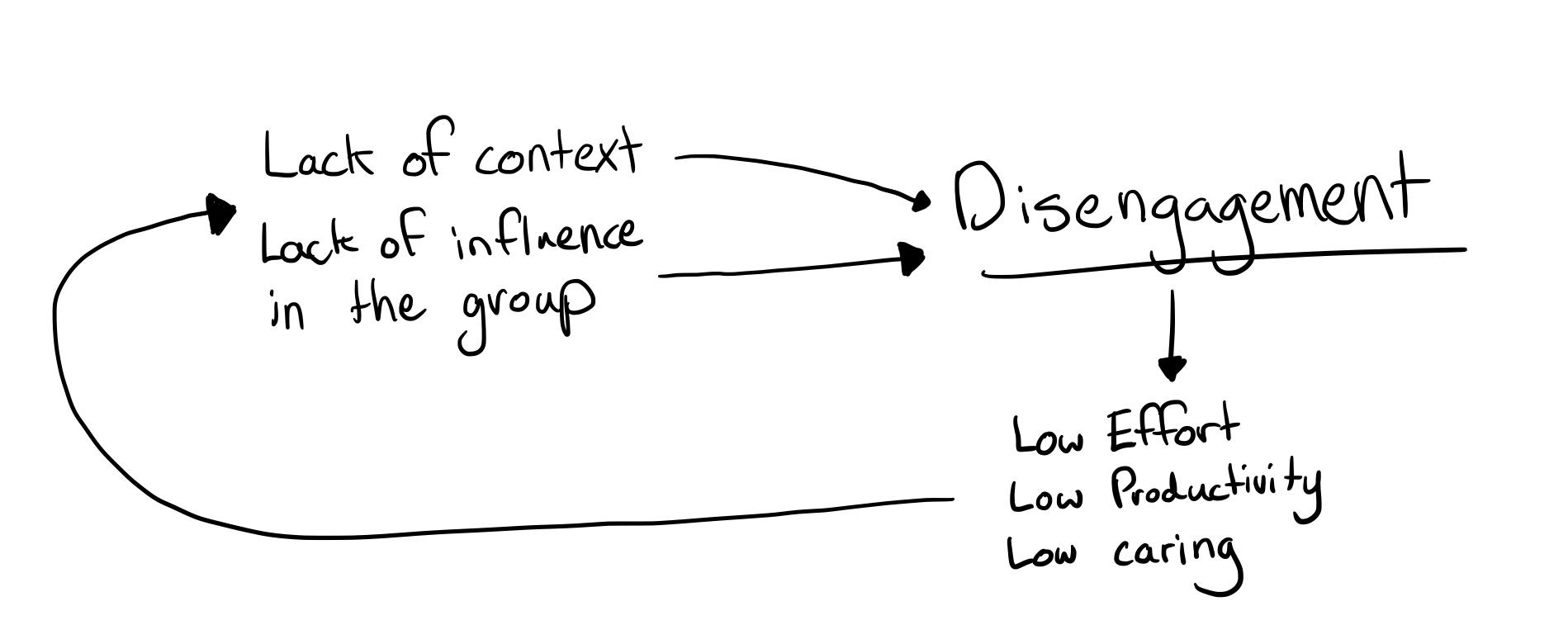How to break the Disengagement Death Spiral
Editor’s Note - this is a migrated post from a previous attempt at a blog.
I recently had the awesome opportunity to temporarily join a new team at my company. I was very excited – I was going to get to work with new people and technologies, and after a few months would come back to my original team. Couldn’t sound better!
However, a couple of weeks after starting on my new team, things weren’t going nearly as well as I expected. I was having trouble focusing on my work, and tools that usually help me (such as the Pomodoro technique) weren’t effective at getting me to focus.
Before I know it I found myself giving the same status every morning at standup “I’m stuck on X and haven’t made much progress”. It feels embarrassing to have nothing to show for each day while everyone else around you continues to get their work done. I began to check out, take longer lunches and barely even try to get my tasks done. The less I cared, the harder the work became. Before I knew it the rotation was over, I barely completed anything, and it was clear to everyone that my time on the team wasn’t beneficial.
I believe that for many of us, this is a unfortunately familiar scenario. Over the course of our careers everyone is likely to join a team where they don’t immediately fit in. If nothing happens to improve the situation, it becomes harder and harder to find their place and before they know it, they begin to a negative feedback loop, getting more and more disengaged with their work and coworkers.
The Disengagement Death Spiral
After sitting down to reflect on what happened to me, what’s clear is that disengagement, the act of withdrawing from a group, feeds on itself in a negative feedback loop. This means without conscious intervention, the process will get worse and worse.

When you don’t have context on a team or organization, such as the systems they work on and the major priorities they have, it can be hard to care about the work you are doing. You’re average person wants to work towards a goal, and doesn’t feel motivated if they can’t relate the work they are doing to the larger whole. Likewise, as a new person on a team, you have almost no influence on the group. Overtime without these two problems getting better they can cause you to become disengaged from your work. You begin to lose motivation, and your lack of context and influence gets worse as you pull away from the group.
While its embarrasing to post that I was unproductive for two months, I think addressing problems like these brings to the light things that happen to everyone. This negative cycle is a real risk that can happen to anyone joining a new team. My next post we will go over the flip side to this, the positive feedback loop that happens when you are engaged in a task, and what you can do (as well as what you can do as a good team mate) to pull yourself out of the death spiral.
Big shout out to the book Principles: Life and Work by Ray Dalio – great book on how to take a hard look at mistakes you’ve made, and use them to improve in the future.